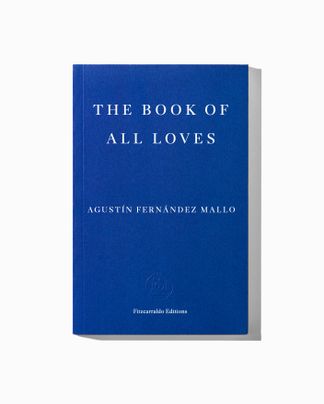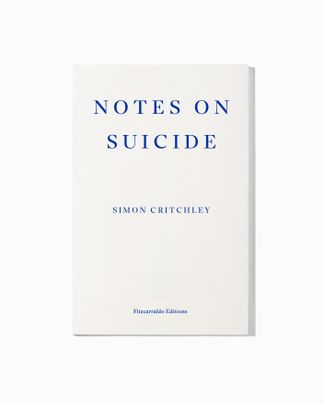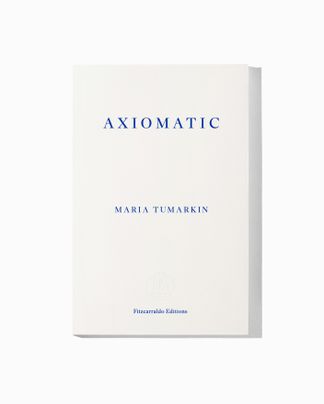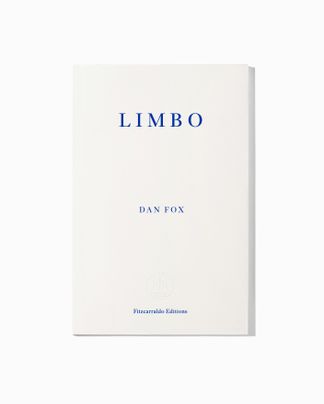Transcendence for Beginners examines life writing and philosophy across certain European and Indian traditions, exploring questions of childhood and mortality, art and religion, beauty and loss. Informed by her experience as a biographer of Søren Kierkegaard and George Eliot as well as her own life, Clare Carlisle asks what one human existence can reveal, and how writing can transmit its truth. Intellectually stimulating and deeply moving, Transcendence for Beginners enacts a philosophy of the heart, told by a generous and compelling guide. This bold, enlivening work asserts Carlisle’s place as one of our most innovative thinkers.
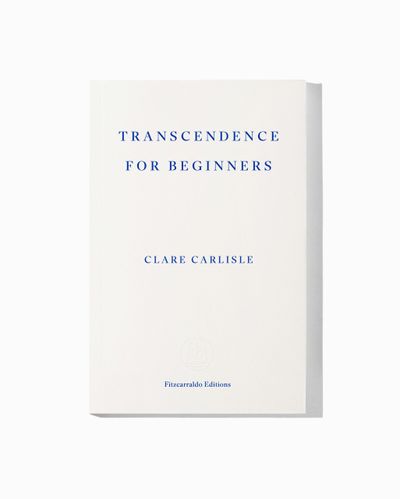
Transcendence for Beginners
French paperback with flaps, 184 pages | Audiobook read by Clare Carlisle
Published 11 September 2025
Transcendence for Beginners
0
I . HALFWAY UP A MOUNTAIN
Twenty years ago, before I had a proper job, I met a man who lived in a cave halfway up a mountain in north India. The mountain path began just above Dharamsala, in the foothills of the Himalayas. Under British rule this was an important hill station and the summer residence of at least one Victorian Viceroy of India. Dharamsala’s colonial history made it a hospitable place for western travellers. Most days a few tourists hiked to the top of the mountain and back down again. After a couple of hours’ walking you reached the cave where this man, whose name I’ve now forgotten, had a little stall selling bottles of water and soda, snacks and sweets in foil packets, soft chocolate bars, cigarettes.
One day I climbed the mountain with an American woman I’d met at my guest house. On the way back we rested at the stall, looking across the valleys and distant hills stretching out beneath us. The man seemed reserved and rather stern, but in response to our questions he told us that he lived there. Beside the cave was a stone shrine. He called this a temple; it was just large enough for one person to stand inside, with three walls, no door and a roof. When he was sixteen or seventeen he had decided to leave his village down in the valley, renouncing what he’d been taught to hope for: marriage and fatherhood, professional success, a respected place in his community. He had moved into this cave and built his temple. There was no other stall or dwelling along the mountain path and he made enough money to get by. He was now about thirty, a few years older than me. I’d been in India for a couple of months and had seen a lot of sadhus with long matted hair, bare chests and feet, wearing beads and orange dhotis. But this man looked ordinary, in regular trousers, collared shirt and acrylic pullover.
A few days later I walked the path again, this time on my own. I stopped at the stall. The man showed me inside his cave. It was the size of a small room, neat and stark, with a little gas stove, a pan, a cup, a bowl, a bucket. His bed was a piece of cotton laid across the stone floor, and a wool blanket to cover him. It gets very cold up there in the winter. We went back out into the sunshine and sat together watching the great empty sky. He spoke a little English, enough to tell me about stormy nights when the whole mountain raged – ‘Boom, full power,’ he said, stretching out his arms and opening his eyes wide. There had been times when he thought he was going to die. A few years earlier he had met a European woman, passing along the path like me, and they’d lived together for a while. She stayed a few months, maybe a year. I had the feeling he wanted me to stay with him. An enormous bird of prey flew overhead. How wide was its wingspan, he asked me – surely five feet? – and he stretched out his arms again and said ‘Wow, full power!’ By this time it was late in the afternoon, the sun was sinking, and if I stayed any longer it would be dark before I reached the town. So I said goodbye and set off down the mountain path, back to my guest house.
My trip to India was coming to an end: in a couple of days I had to fly back to England. The next morning, my last in Dharamsala, I went to a shop that sold Kashmiri shawls and local textiles, and chose some gifts for my family. I also bought two colourful cushion covers embroidered with geometric shapes of trees, animals, birds – one for myself and one for the man in the cave. They came in many colour combinations and I spent ages choosing between them, and more time agonizing about getting one for him, because he might think it was touristy and silly. I bought a soft cushion to go inside his cover and walked back up the mountain path to give it to him. He seemed pleased, and put it in his cave on the stone bed. We sat together again for a couple of hours, smoked some hashish, gazed down into the valley and up into the wide blue sky. He went to get his cushion to look at it again. We tried to figure out what the animal shapes were supposed to be. ‘What is this?’ he said, pointing to one of them. ‘Is it a chicken?’ We collapsed laughing, tears filling our eyes.
Then we said goodbye. I walked slowly down the mountain, a little dazed under the bright sun, my heart swelling with something sad and sweet, a feeling I carried with me all the way to Delhi, on the plane to Heathrow, and back home to Manchester. This was my first visit to India and it had changed me. Most intense of all was my feeling for this man, or rather a mixture of feelings, among them an ache of longing – not a longing for him, but a longing we shared, which in his case had found expression in a little temple built stone by stone, with two bare hands, halfway up a mountain. Over the years I’ve met a few people who exuded a palpable spiritual quality, some rare insight or depth or stillness you could feel in their presence. The man on the mountain was not like that. It was his choice that moved me. This choice seemed full of courage and uncompromising love – but for what? Whenever I thought about it the word ‘noble’ came to mind, though I puzzled over what exactly that meant.
Eventually these impressions faded until I hardly thought of him at all. After that trip to India I got a job in a university, bought a two-bedroom flat, had a baby. I never went back to Dharamsala and I don’t know if he’s still there. Then last year I was asked to give the Gifford Lectures at St Andrews and, for reasons I did not immediately understand, I found myself thinking about him again.
(…)
‘The final chapter, “Transcendence for Beginners”, ties it all together, asking whether we can have access to a noble or radiant realm while still in the midst of life. By this time, we have climbed quite a mountain of ineffability, but Carlisle has led us so gently step by step that we are willing to follow. Having arrived at the ending, we look back to see that we have traversed territory that is not completely religious but is not merely aesthetic or literary or psychological either. Like the man in Blixen’s fable, we see a picture traced by our steps, but I suspect it may vary for each reader, and even for the same reader at different times and in different moods. This is to Carlisle’s credit: we can make our own shape out of her words because she is never dogmatic and because she is clearly on an open-ended quest herself. All possibilities remain alive in this subtle, generous and humane book.’
— Sarah Bakewell, Guardian
‘For an academic and intellectual as eminent as Clare Carlisle … to tackle the topic of what biography is for and what it can be feels remarkable and turns out to be thrilling…. One of Carlisle’s great skills in these essays, which started life as the prestigious Gifford Lectures, is the way she anchors her sophisticated arguments in anecdotes and case histories that non-philosophers can understand…. Carlisle is too sharp a mind to insist that she has located the ways in which philosophy and biography, done right, can lead to transcendence. Doubtless she would say that she is a beginner in these matters as much as anyone else. All the same, in this wondrous little book she confirms her status as one of the most original non-fiction writers at work today.’
— Kathryn Hughes, Literary Review
‘Spanning continents and centuries, traversing mountains and seas, this expansive book asks what it means for a philosopher, or a biographer, to work from life. Carlisle’s beautiful prose fizzes with illuminating questions, stories and, above all, human connections, as she maps out a powerful and moving “philosophy of the heart.”’
— Francesca Wade, author of Gertrude Stein: An Afterlife
‘This is the book of a lifetime, and a book about lifetimes. What is the relationship between philosophy and biography? How can a line of writing reveal a line of living? Clare Carlisle is a guide and a guru: Transcendence for Beginners is a transformative and transcending experience’
— Frances Wilson, author of Electric Spark
‘A book of great intricacy and grace. Clare Carlisle is able to look upon the physics of literature, narrative and being as a scientist might look upon the constellations, giving us both understanding and wonder.’
— Jessica Au, author of Cold Enough for Snow
‘In this elegant, eloquent, elegiac book, Clare Carlisle describes the movements of other lives, as well as those of her own life, that open paths to understanding what it means to live a life of devotion. This is philosophy as rigorously thought, but also as felt and lived. In an era marked by rampant cruelty and selfishness, Transcendence for Beginners offers its readers various modes of the radiant life, one that embraces joy but can also navigate loss and grief in that strange flux of being we call “time.”’
— Siri Hustvedt, author of Mothers, Fathers and Others
‘A wide ranging and surprisingly moving examination of what it is to have, and live, a life.’
— Jessie Greengrass, author of The High House
‘By taking the discussion on life-writing away from genre towards, instead, philosophical histories of the self, this book makes a powerful case for rethinking life-writing’s significance. In the process, it both explores remembering and remembers, doing both with an often startling critical intelligence as well as with surprising emotional immediacy.’
— Amit Chaudhuri, author of Sojourn
‘A work of thrilling lucidity and substance, on the singularity of lives and the value of life-writing, in which Clare Carlisle shows herself to be the most companionate of thinkers, gifted with uncommon modesty and intellectual grace. A book to read slowly, talk about, savour and learn from.’
— Claire Harman, author of All Sorts of Lives
‘Transcendence for Beginners is a brilliant book – one of the most intelligent and sophisticated meditations on life-writing I’ve ever read, as well as a powerful demonstration of what the best life-writing can do in practice. Carlisle approaches this “humble literary genre” in the fullness of its ethical dimensions.’
— Edmund Gordon, author of The Invention of Angela Carter
‘[F]ascinating and beautifully argued.’
— Jonathan Taylor, Morning Star
Praise for The Marriage Question
‘The Marriage Question already has the stamp of a classic and is bound to enter the canon of great biographies. I was amazed by the clarity of Clare Carlisle’s language; she deals with the most complex ideas with miraculous ease. It was a delight to read while at the same time being deeply thought-provoking. I’m already looking forward to reading this magnificent book again.’
— Celia Paul, author of Letters to Gwen John
‘Finally, Eliot has got the biographer she deserves, namely an ardent and eloquent feminist philosopher who shows us how and why Eliot’s books, rightly read, are as philosophically profound as any treatise written by a man.’
— Stuart Jeffries, Observer
‘Clare Carlisle’s The Marriage Question is the best book I’ve read on George Eliot.’
— John Carey, Sunday Times
‘Eloquent and original … [Carlisle] combines a biographer’s eye for stories with a philosopher’s nose for questions…. Masterly and enriching…. The deal historian [of marriage] will need great tact and an impious curiosity. Carlisle has both.’
— James Wood, New Yorker
‘In this thrilling book, the academic philosopher Clare Carlisle explores the novelist’s interrogation of “the double life”, meaning not only Eliot’s own 25 years of unsanctioned coupledom with Lewes, but also the difficult love relationships she unleashed on her heroines…. Carlisle speaks of wanting to employ biography as philosophical inquiry and here she succeeds magnificently. With great skill and delicacy she has filleted details from Eliot’s own life, read closely into her wonderful novels and, most importantly, considered the wider philosophical background in which she was operating.’
— Kathryn Hughes, Guardian
‘This book manages to be both engrossing and rigorous, inhabiting an intimate and expansive vision of creativity and the lived life. Following the pulsing and ever-vital questions of love, desire, compromise and companionship, The Marriage Question is both a thrilling work on Eliot and a probing, illuminating reflection on modern love.’
— Seán Hewitt, author of Open, Heaven
Clare Carlisle is Professor of Philosophy at King’s College London, and the author of eight books on philosophy and philosophers, including Philosopher of the Heart: The Restless Life of Søren Kierkegaard and most recently The Marriage Question: George Eliot’s Double Life. She grew up in Manchester, studied philosophy and theology at Trinity College, Cambridge, and now lives in East London.

